Lighting the Global Workspace
13 - 17 February 2015
In early 2014, ANCB and Zumtobel initiated a global research study on light and lighting in the contemporary office environment. Five research teams of universities from Australia, South America, Europe, Africa and Asia have been involved in this year-long study. The goal of the study was to understand diverse lighting situations around the globe and their potential for innovation. 10 office spaces in Sydney, Medellín, Berlin, Lagos and Manila were analyzed. One work environment per city was chosen by a jury to be investigated further on visionary potential during this professional workshop week in Berlin. The workshop week closed with a high-profile symposium on 20 February 2015 at ANCB.
The workshop brought five student groups and their respective selected projects together at ANCB. The week-long intensive workshop was aimed at condensing the essential thesis behind each proposal as well as extracting transferable outcomes on one hand and region-specific, culture-related conclusions on the other hand. Building upon an extensive analysis from the previous semesters work on the project, new and comprehensive facts emerged during the workshop week. The coaches were able to integrate additional aspects of the analysis and direct the student groups towards a structured, coherent concept. The workshop week would start every morning at 9am with a communal breakfast for informal exchange. On day one, Friday the 13th of February, this breakfast was followed by an introduction from ANCB programme manager Miriam Mlecek, workshop coaches Dietmar Leyk and Andres Ramirez and guest coaches Nikolaus Johansson, Sophie Moser and Andreas Reimann from Zumtobel, Prof. Almut Grüntuch-Ernst, Ines Aubert and Anna Lemme Berthold from the TU Braunschweig. The students were then asked to present their projects to support exchange and create a common basis of knowledge amongst coaches and participants. The coaches introduced the students to their specific tasks and encouraged communication with the relevant experts and amongst each other. Every afternoon would be filled with intensive work on the projects. Site visits and evening activities throughout the week included a concert at the Berlin Philharmonic, a soccer match at the Olympic stadium, a guided tour at the Boros collection art bunker and an office visit at the Sound Cloud headquarter with an input talk by Kinzo Architects. Alexander Rotsch from Arup joined the interim presentation and gave a comprehensive input lecture on his involvement in current projects. Other guests included Michael Adebamowo and Adetokunbo Sangowana form the University of Lagos, acting as guest coaches during the week.
New synergies developed due to the various backgrounds of the students and different curriculums/focuses of the five universities. This also partly resulted from new formats the universities themselves had to develop to integrate the research project in their semester schedule or institutional frame. Some universities offered the project as an elective across different faculty groups such as architecture, interior design, planning or engineering. Additionally, the groups learned from each other by comparing projects, methods and backgrounds. Throughout the week, the students improved communication and presentation skills amongst their peers, with coaches and in front of the jury judges.
Following the tasks outlined in the original project paper, the coaches expected from the students further development on a spatial, visionary and cohesive level while addressing local challenges. The students were asked to identify the questions relevant for their specific location and project context. On a formal level, innovative presentation methods and higher quality of representation, through the production of a panel and a short video, were encouraged.
ANCB PROGRAMME
Theme
#responsivecity
Enquiry Programme
#knowledge
Collaborative Project
#globalworkspace
ANCB Partners

